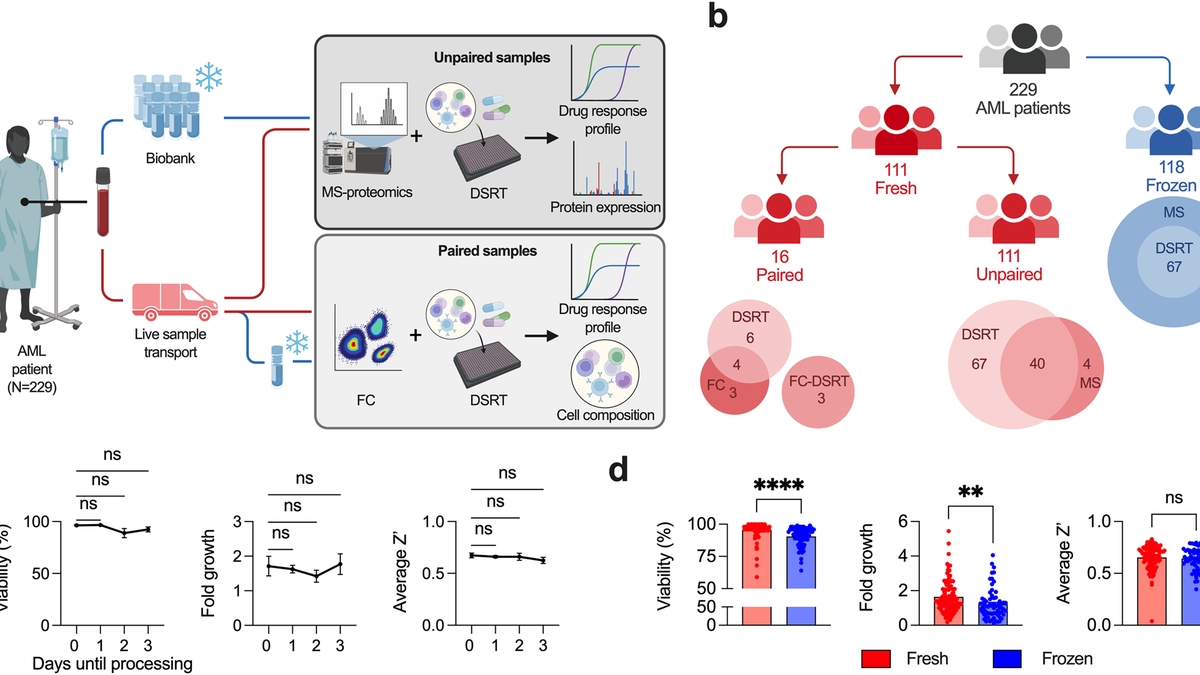
The field of leukemia research and treatment has made significant strides in recent years, particularly in the realms of sample handling, cell fitness, and composition. In particular, cryopreservation, a process of preserving cells by cooling them to sub-zero temperatures, has become an integral part of this research. However, a recent study has shed new light on the impact of cryopreservation on cell fitness and composition, particularly in the context of leukemia and drug testing.
The Impact of Sample Handling and Cryopreservation
A study featured on Nature discusses how sample handling can significantly impact functional and molecular testing results in translational research. The study, which used 229 acute myeloid leukemia (AML) patient samples, found that sample biobanking could lead to changes in cell phenotype, protein expression levels, and sensitivity to drugs targeting cell proliferation, metabolism, and tyrosine kinases. Furthermore, freezing samples could lead to systematic errors in drug sensitivity scores, affecting outcomes in translational studies.
Implications for Functional Precision Medicine and Biomarker Discovery
The findings of these studies underline the importance of method standardization to increase consistency between laboratories and improve reproducibility in functional precision medicine and biomarker discovery. These results can be crucial in the development of new treatments and therapies for leukemia and other related conditions.
The Impact of Cryopreservation on Cell Fitness and Composition
A study outlined on Cigna further delves into the impact of cryopreservation on cell fitness and composition in leukemia. It found that cryopreservation can lead to changes in the fitness and composition of leukemia cells. This has significant implications for the use of cryopreserved cells in research and treatment.
Understanding the Transcriptional Intricacies of Leukemia Cells
Another critical aspect of leukemia research is understanding the transcriptional intricacies of leukemia cells. A recent article on MDPI discusses the impact of single-cell sequencing technologies on this area. By gaining a deeper understanding of CAR-T therapy, the hope is to improve clinical outcomes and broaden therapeutic applications.
Conclusion
In conclusion, the impact of cryopreservation and sample handling on cell fitness and composition is a critical area of study in leukemia research. These findings have far-reaching implications for the assessment of cell behavior and drug response treatment strategies. As more advancements are made in this field, the hope is to continue improving patient outcomes and expand the possibilities for leukemia treatment.
